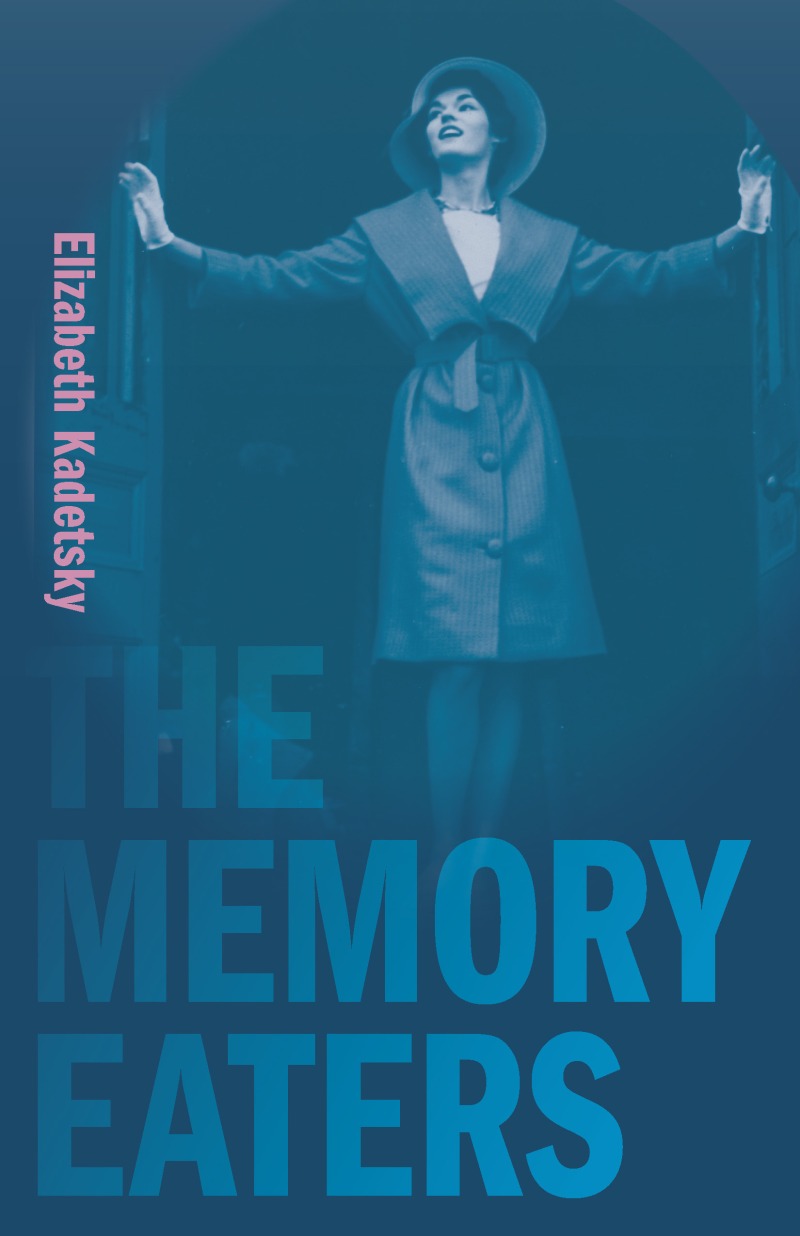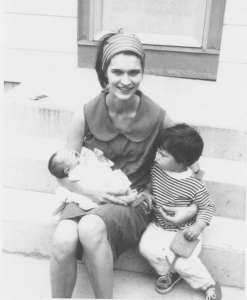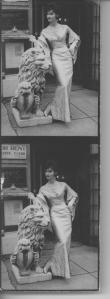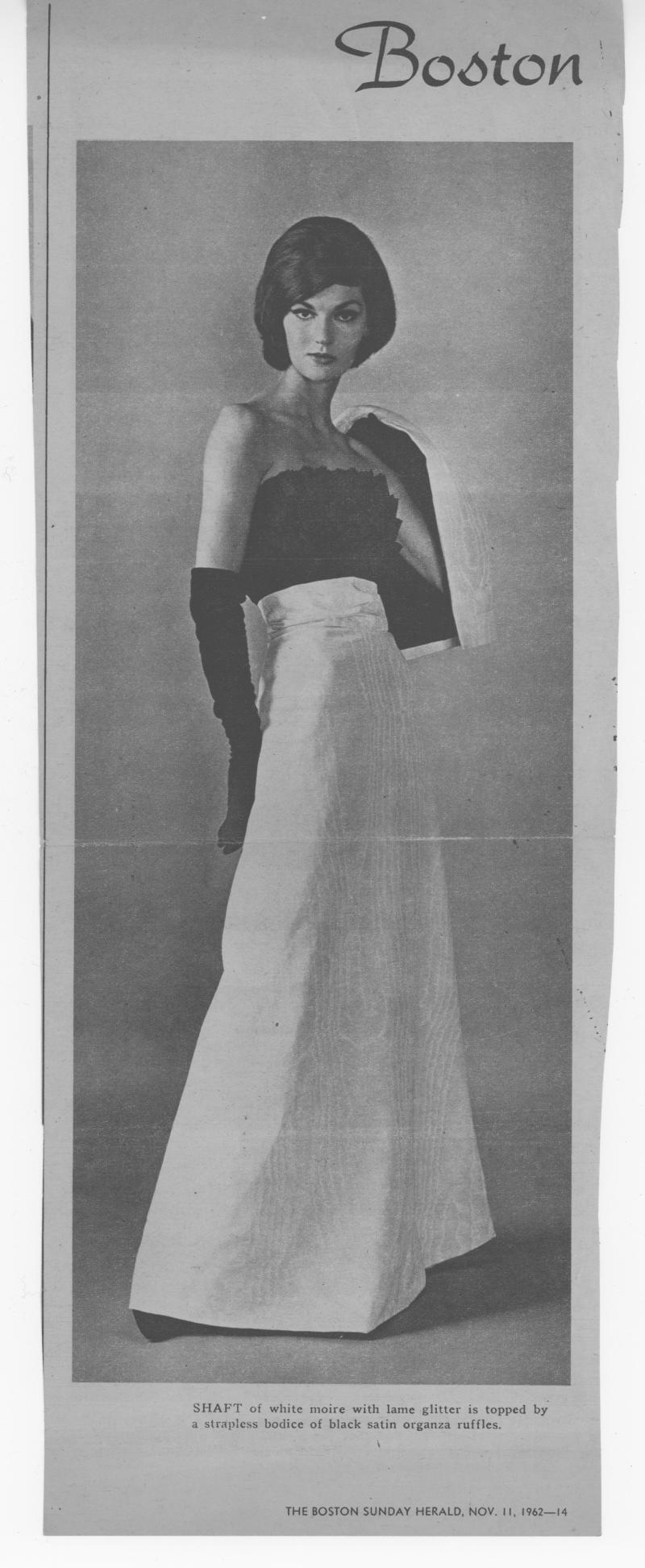 The Memory Eaters, U. Mass Press March 31, 2020, winner of the Juniper Prize in Creative Nonfiction
The Memory Eaters, U. Mass Press March 31, 2020, winner of the Juniper Prize in Creative Nonfiction
order here
amazon / barnes & noble / indiebound / u mass press
News
Advance praise
Backstory
Excerpts
On autopsy, the brain of an Alzheimer’s patient can weigh as little as 30 percent of a healthy brain. The tissue grows porous. It is a sieve through which the past slips. As her mother loses her grasp on their shared history, Elizabeth Kadetsky sifts through boxes of the snapshots, newspaper clippings, pamphlets, and notebooks that remain, hoping to uncover the memories that her mother is actively losing as her dementia progresses. These remnants offer the false yet beguiling suggestion that the past is easy to reconstruct— easy to hold. At turns lyrical, poignant, and alluring, The Memory Eaters tells the story of a family’s cyclical and intergenerational incidents of trauma, secretkeeping, and forgetting in the context of 1970s and 1980s New York City. Moving from her parents’ divorce to her mother’s career as a Seventh Avenue fashion model and from her sister’s addiction and homelessness to her own experiences with therapy for post- traumatic stress disorder, Kadetsky takes readers on a spiraling trip through memory, consciousness fractured by addiction and dementia, and a compulsion for the past salved by nostalgia.
“Ghosts live with us… We accept the existence of ghosts,” Elizabeth Kadetsky writes in her engaging new memoir-in-essays, The Memory Eaters, a book which explores the ways in which we both survive and absorb the traumatic events of our family’s past and of our own lives, in part by forgetting them, in part by struggling to preserve them. Do we model ourselves according to our parents’ and grandparents’ behavior? Or are we  invisibly altered through our genetic inheritance? How might our conscious attention to the details of our past allow us to change our reactions to the world? And yet how is it that the past also shapes us in ways we can scarcely comprehend or perceive? Kadetsky’s nuanced essays explore the complicated contradictions inherent to memory, how memory holds us captive to our familial wounds, while at the same time helping us preserve the stories, and presences, of those we love.
invisibly altered through our genetic inheritance? How might our conscious attention to the details of our past allow us to change our reactions to the world? And yet how is it that the past also shapes us in ways we can scarcely comprehend or perceive? Kadetsky’s nuanced essays explore the complicated contradictions inherent to memory, how memory holds us captive to our familial wounds, while at the same time helping us preserve the stories, and presences, of those we love.
~ Paisley Rekdal, author of The Broken Country
In The Memory Eaters, Elizabeth Kadetsky carries us down “the river of forgetfulness,” a journey that proves both brilliant and beautiful. The author’s precise eye for detail, the lushness of her prose, her relentless and unflinching determination to comprehend a family’s incalculable mysteries, shape a vividly unforgettable memoir of longing and discovery. This one will haunt me for some time.
“the river of forgetfulness,” a journey that proves both brilliant and beautiful. The author’s precise eye for detail, the lushness of her prose, her relentless and unflinching determination to comprehend a family’s incalculable mysteries, shape a vividly unforgettable memoir of longing and discovery. This one will haunt me for some time.
~ Dinty W. Moore, author of Between Panic & Desire
There’s a scene at the end of Elizabeth Kadetsky’s searing memoir The Memory Eaters, where the author tries to run power for all the items in a 700 square foot apartment through two sockets. Not surprisingly, the circuit breaker blows. It is an apt metaphor for the heartbreaking and often brutal catastrophes that befall Kadetsky. But unlike the circuit breakers, the author doesn’t blow. On the contrary, she illuminates her battles with her mother’s Alzheimer’s, her sister’s addiction, and family secrets with radiant insights and gorgeous writing. Ultimately, Kadetsky answers the question inherent in this memoir:  Can we remake the past using the wisdom of the present? The Memory Eaters exquisitely answers that question in the affirmative.
Can we remake the past using the wisdom of the present? The Memory Eaters exquisitely answers that question in the affirmative.
~Betsy Carter, author of We Were Strangers Once
Kadetsky’s The Memory Eaters functions as love letters to single mothers, to New York City of the 70s and 80s, to the fashion industry, to graffiti artists, and to her own mother, of course. And like all the best love letters it’s simultaneously wistful and romantic and cutting and sublime. The lyric approach she employs effects a dizzying parallel to the destabilizing experience of dealing with a loved one’s Alzheimer’s. She, to use her own words, describes a taxonomy of the unknown.
~Jeff Parker, Juniper Prize for Creative Nonfiction judge and author of Where Bears Roam the Streets
